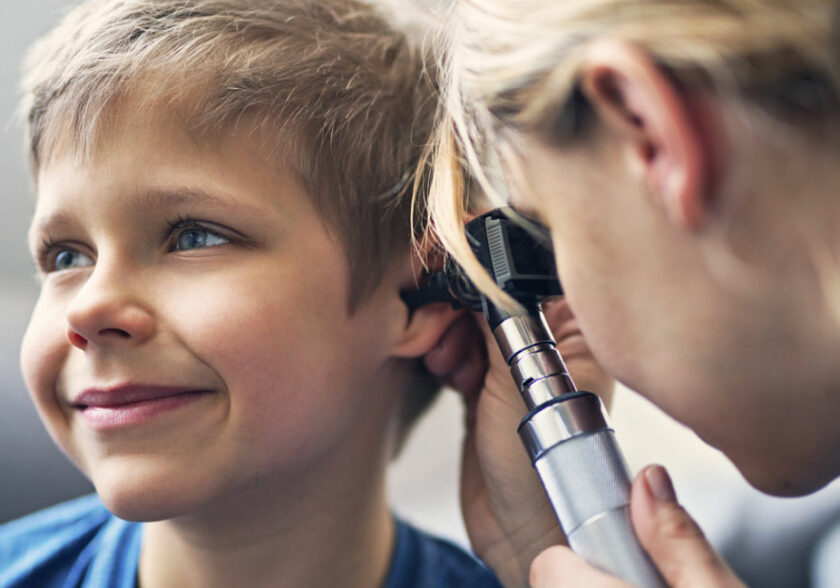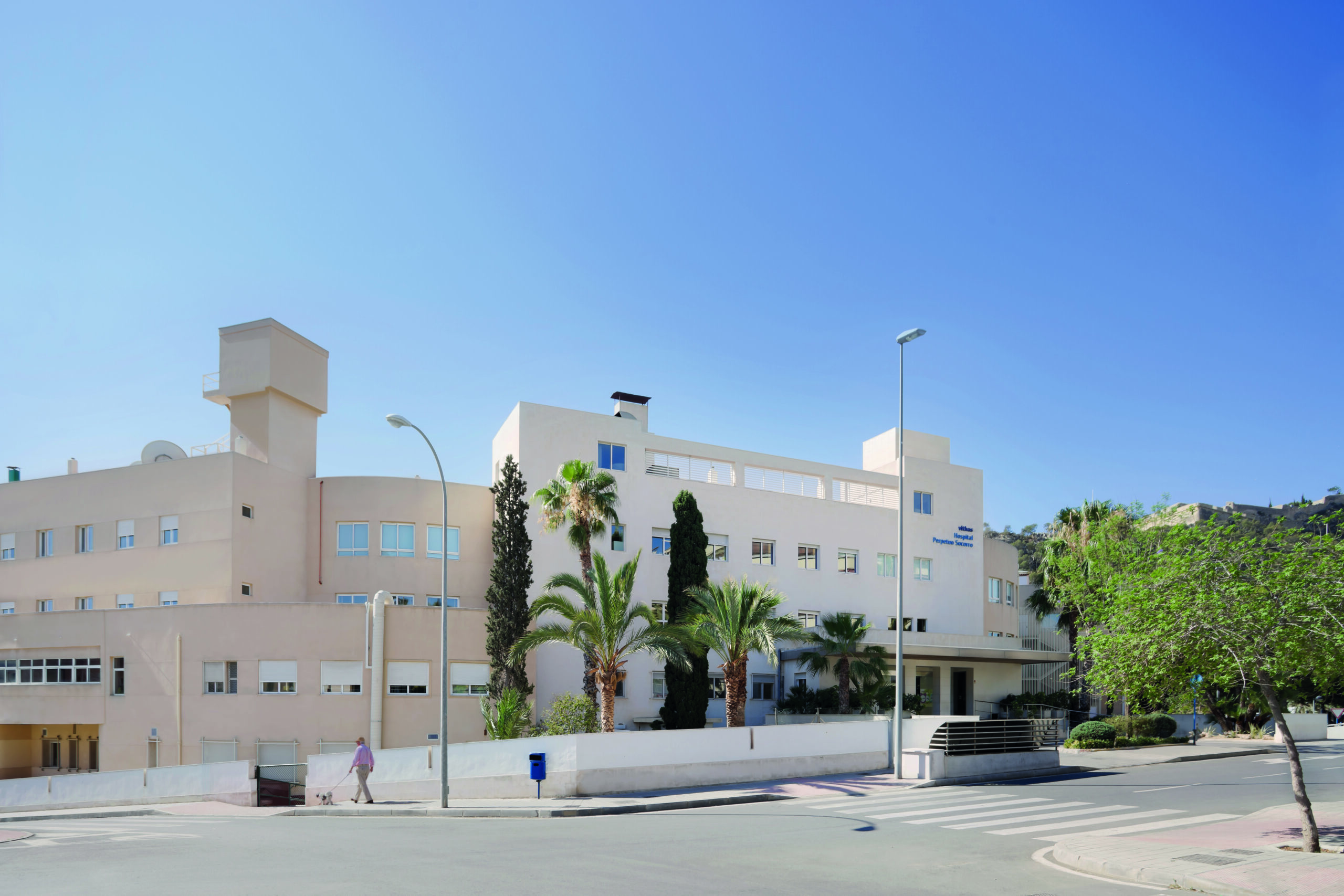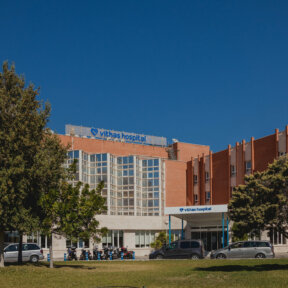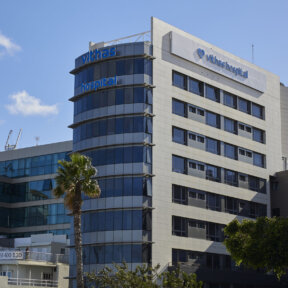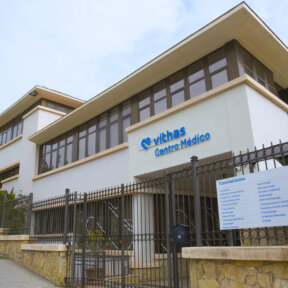What is otorhinolaryngology?
The Otorhinolaryngology Service is concerned with the diagnosis and medical and/or surgical treatment of all conditions affecting the ear, nose and sinuses, oral cavity, hypopharynx, neck and larynx.
Which patients is it for?
It is intended for patients with conditions affecting the ear, nose and sinuses, oral cavity, hypopharynx, neck and larynx.
Main conditions and diseases
- Paediatric otorhinolaryngology: Management of acute or chronic conditions of both the ear (serous otitis, speech or hearing disorders), as well as tonsillar and/or adenoid conditions in paediatric patients.
- Rhinology and endoscopic nasal surgery: Functional medical or surgical treatment using the most advanced endoscopic techniques, including radiofrequency turbinate reduction, tuboplasty (for Eustachian tube dysfunctions) and nasal polyposis or chronic rhinosinusitis surgery. Correction of nasal septal deviations. Treatment of chronic rhinitis and abnormalities resulting from a lack of proper nasal breathing.
- Otology: Diagnosis and treatment of hearing loss (otosclerosis, cholesteatoma surgery, functional ear surgery). Equilibrium/vertigo dysfunction and disorders. Tinnitus.
- Cervical conditions and oncology: Management of both benign conditions (cysts, salivary gland conditions) and malignant tumour lesions of the oral cavity, tongue, hypopharynx and larynx.
- Cochlear and middle ear implants: Audiological study and surgical treatment of sensorineural and conductive hearing loss and management of age-related hearing loss.
- Olfactory disorders: Study of olfactory impairment using olfactometry, related or not to COVID-19. As well as personalised modified olfactory rehabilitation therapy.
- Chronic cough and voice disorders: Management of conditions associated with using the voice professionally, as well as smoking-related disorders or other conditions affecting the vocal cords. Study of patients with chronic cough.
- Sleep disorders and snoring: Possible surgical or medical treatment is assessed by the Sleep Disorders Unit team based on the diagnosis. Treatment will be done in a multidisciplinary manner together with the Pulmonology, Neurophysiology, Maxillofacial Surgery and Endocrinology departments.
- Balance disorders and vertigo: Medical or surgical treatment of Ménière’s syndrome and other balance disorders in susceptible patients.
Main tests and diagnostic resources
Otology
- Detection and assessment of hearing loss
- Videootoendoscopy
- Otomicroscopy
- Pure tone audiometry
- Impedance audiometry
- Brainstem auditory evoked potential (BAEP)
- High-frequency audiometry
- Acuphenometry
- Dynamic posturography
- Videonystagmography
- Head Impulse Test (HIT)
- Balance and balance disorder assessment
Rhinology
- Nasal videoendoscopy
- Rhinoscopy
- Nasal fibreoptic endoscopy
- Rhinomanometry
- Snoring study
- Nasal allergy study
Pharyngology
- Pharyngoscopy
- Laryngoscopy
- Videolaryngoscopy
- Rhinofibrolaringoscopy
- Study of congenital head and neck fistulas and cysts
- Head and neck tumour study
- Study of cervical lymphadenopathies
- Study of submaxillary glands
Why come to the clinic?
Hearing problems affect and may lead to an early or gradual decrease in hearing ability.
According to the World Health Organisation (WHO), these problems already affect 5% of the world’s population, making it difficult for people to carry out everyday activities as simple as enjoying a conversation with family or friends, listening to music, hearing the television, talking on the phone or participating in meetings.
Untreated hearing problems lead to a lack of stimulation in the brain that eventually causes memory and concentration problems and an increased risk of mental impairment.
Hearing assessments are quick and simple: you will first have an examination of the auditory pathway in an otorhinolaryngology clinic, after which our Audiology Clinic will carry out the necessary tests to detect hearing loss and, if present, classify it in detail and establish the best treatment for each patient.


